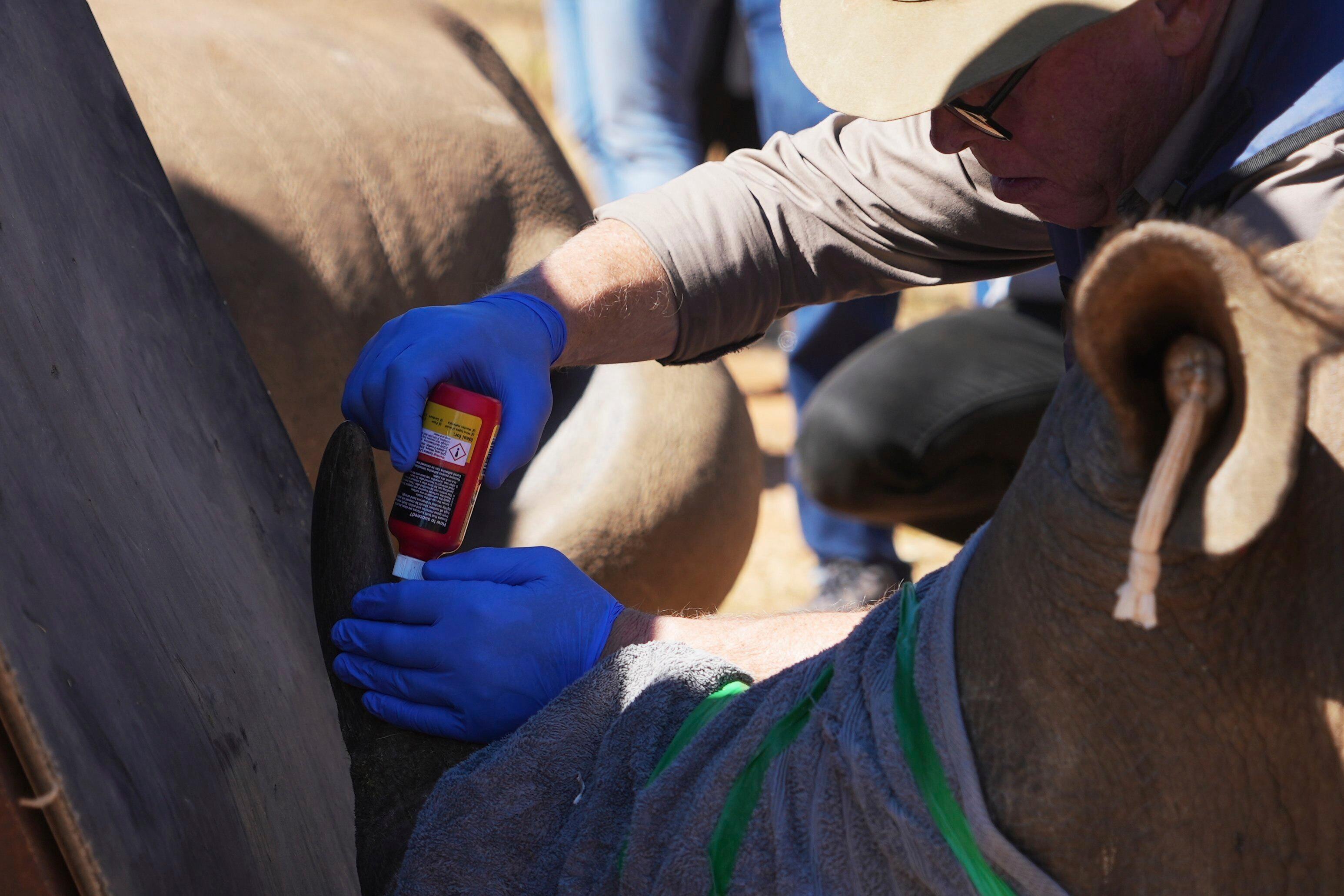
A South African university launched an anti-poaching campaign on July 31 to inject the horns of rhinos with radioactive isotopes that it says are harmless for the animals but can be detected by customs agents.
Under the collaborative project involving the University of the Witwatersrand, nuclear energy officials and conservationists, five rhinos were injected in what the university hopes will be the start of a mass injection of the declining rhino population.
They're calling it the Rhisotope Project.
Last year, about 20 rhinos at a sanctuary were injected with isotopes in trials that paved the way for Thursday's launch. The radioactive isotopes even at low levels can be recognized by radiation detectors at airports and borders, leading to the arrest of poachers and traffickers.
Researchers at Witwatersrand's Radiation and Health Physics Unit say that tests conducted in the pilot study confirmed that the radioactive material was not harmful to the rhinos.
“We have demonstrated, beyond scientific doubt, that the process is completely safe for the animal and effective in making the horn detectable through international customs nuclear security systems,” said James Larkin, chief scientific officer at the Rhisotope Project.
“Even a single horn with significantly lower levels of radioactivity than what will be used in practice successfully triggered alarms in radiation detectors,” said Larkin.
The university has urged private wildlife park owners and national conservation authorities to have their rhinos injected.